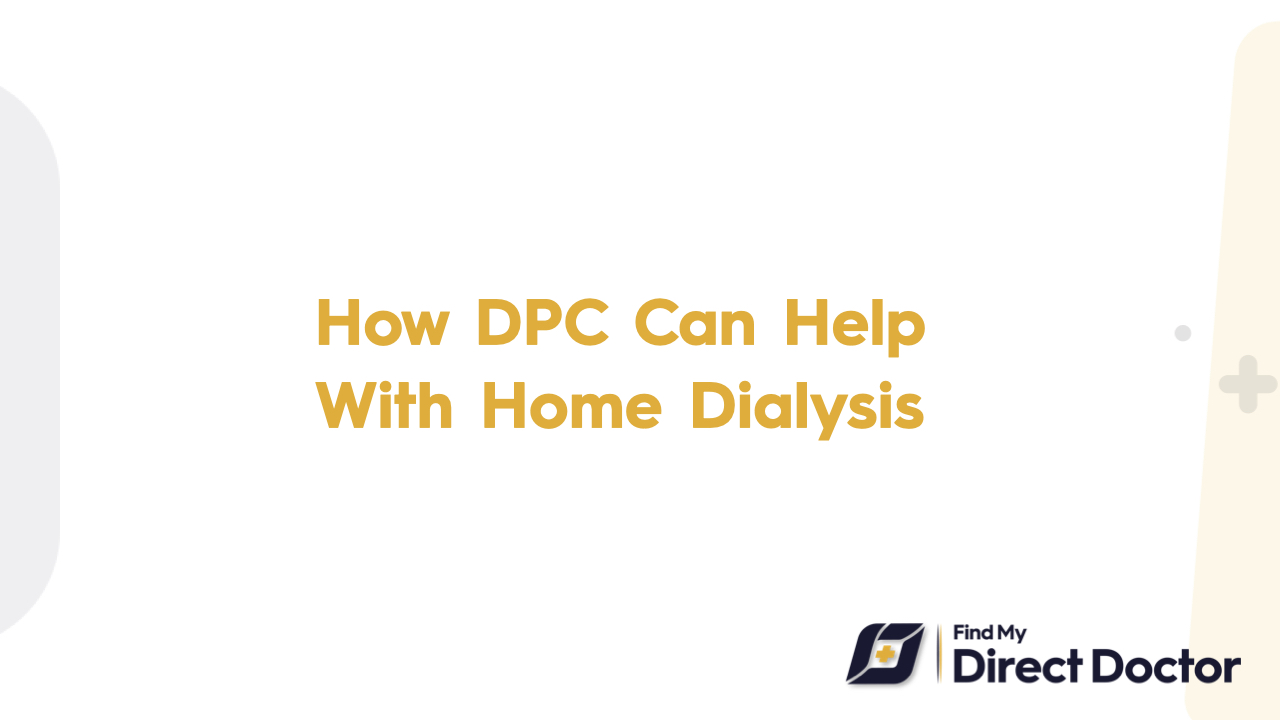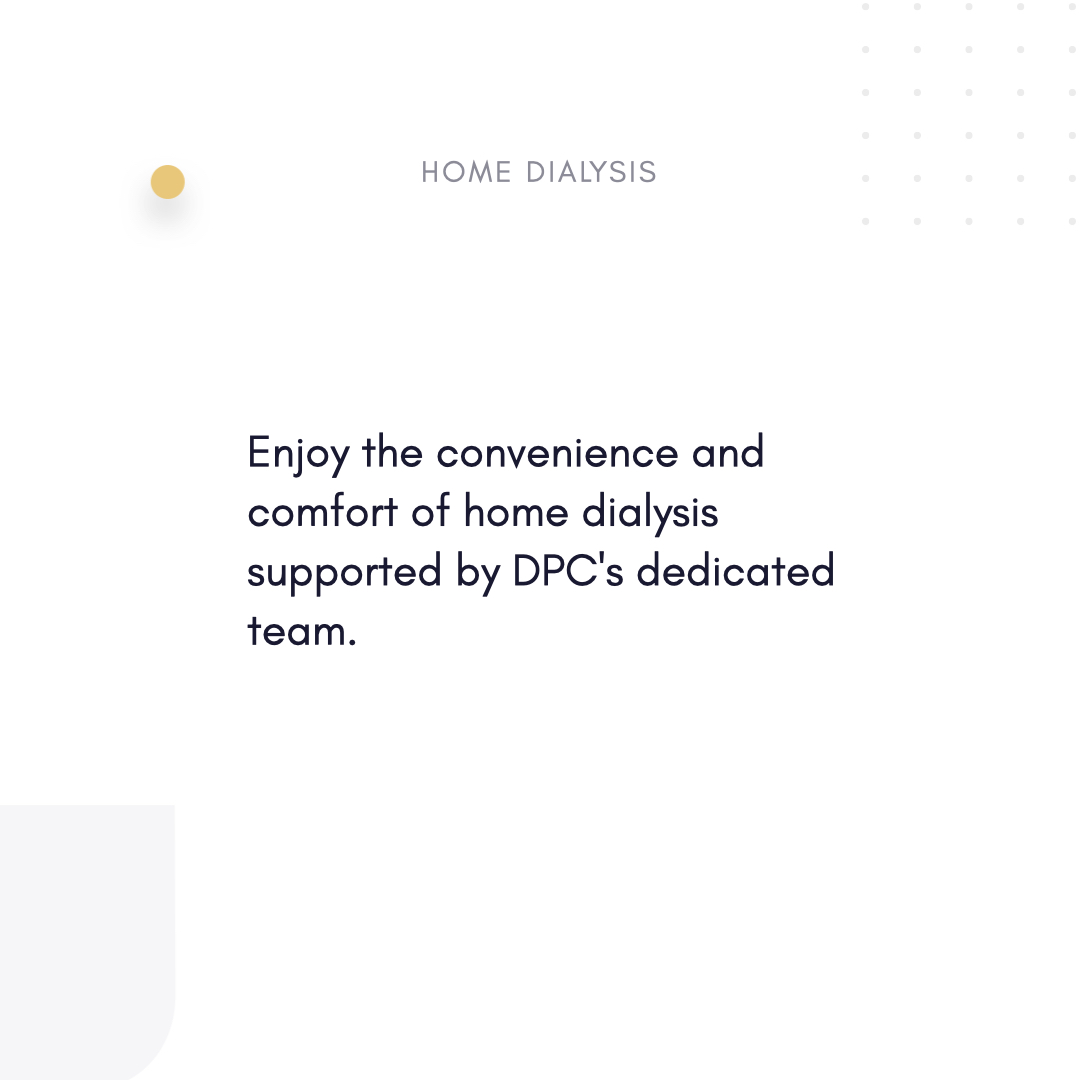Home Dialysis and Direct Primary Care (DPC): Empowering Kidney Health at Home
If you have kidney failure and need dialysis, home-based treatments are flexible and comfortable. DPC makes sure that this life-saving therapy is done safely, with personalized support that fits your life.

Home Dialysis: Freedom with Medical Supervision
Home dialysis consists of:
- Peritoneal Dialysis (PD): Filters blood every day using the lining of the abdomen.
- Home Hemodialysis (HHD): Treatment with a machine three to six times a week.
Both require training, but they give you more freedom than in-center dialysis.
Important information for patients:
- Uses: Treats ESRD (end-stage renal disease) when the kidneys stop working.
- Safety: There is a low risk of infection if the right technique is used, but there is a chance of fluid overload.
- Costs: DPC lowers costs by combining care; traditional home dialysis costs between 70,000 USD and 90,000 USD per year.
Risks of bad management:
- Peritonitis (PD) and problems with vascular access (HHD).
How DPC Changes Home Dialysis Care
Direct Primary Care (DPC) replaces broken nephrology care with ongoing, patient-centered care.
1. Full training and setup
- In-home training: Teach how to use a PD catheter or HHD machine.
- Coordination of supplies: Every month, send HHD kits or dialysate solutions.
- Work with a nephrologist to change prescriptions and labs.
2. Clear prices and all-around help
- Prices that include everything: Membership includes training, supplies, and help around the clock.
- Lower costs: DPC patients save 15–25% by getting lower rates from suppliers.
- Dietary advice: Personalized meal plans to help you control your potassium, phosphorus, and fluid intake.
3. Monitoring and managing crises with care
- Access 24/7: If you suddenly gain weight, have a fever, or have problems with your catheter, call your doctor right away.
- Remote monitoring: Use connected devices, like blood pressure cuffs, to keep an eye on vital signs.
- Preventive care: Schedule regular labs (Kt/V, albumin) to make dialysis work better.
Success Stories from Real Life
- Case 1: John, 55, has ESRD in case 1. John's DPC team taught him how to do PD. He works full-time and does it at night.
- Case 2: Maria, 60, who has HHD. Maria's DPC provider sets up her monthly lab tests and changes her HHD prescription from afar.
Questions and Answers: DPC Home Dialysis
- Q: How long does it take to train?
- A: 1–2 weeks for PD and 3–6 weeks for HHD.
- Q: Is it possible to travel while on home dialysis?
- A: Yes. DPC helps you get the things you need when you get there.
- Q: What should I do if I miss a session?
- A: DPC changes the limits on fluids and sets up a make-up session.
- Q: Are family caregivers trained?
- A: Yes. DPC teaches caregivers what to do in case of an emergency.
Why DPC is the best at taking care of kidneys
The National Kidney Foundation (NKF) puts a lot of stress on teaching patients. DPC gets things done by:
- Proactive care cuts fluid overload crises by 40%, which means fewer hospital stays.
- Making adherence better: Regular check-ins raise compliance from 70% to 90% across the country.
- Reducing costs: By getting care in a bundle, members save 10,000 USD to 20,000 USD a year.
Final Thoughts
Home dialysis isn't just about staying alive; it's about living life on your own terms. With DPC, you get a partner who gives you information, helps you stay independent, and makes sure that every treatment fits with your life. No crowded centers, no broken care—just expert help that lets you focus on living, not just dialysis.






